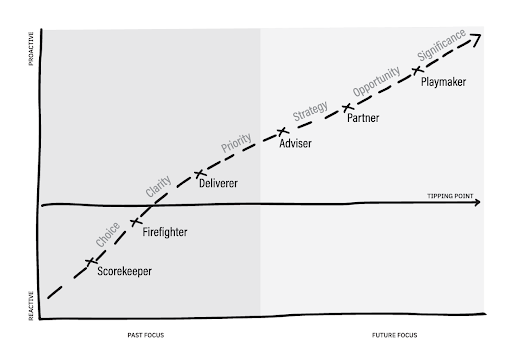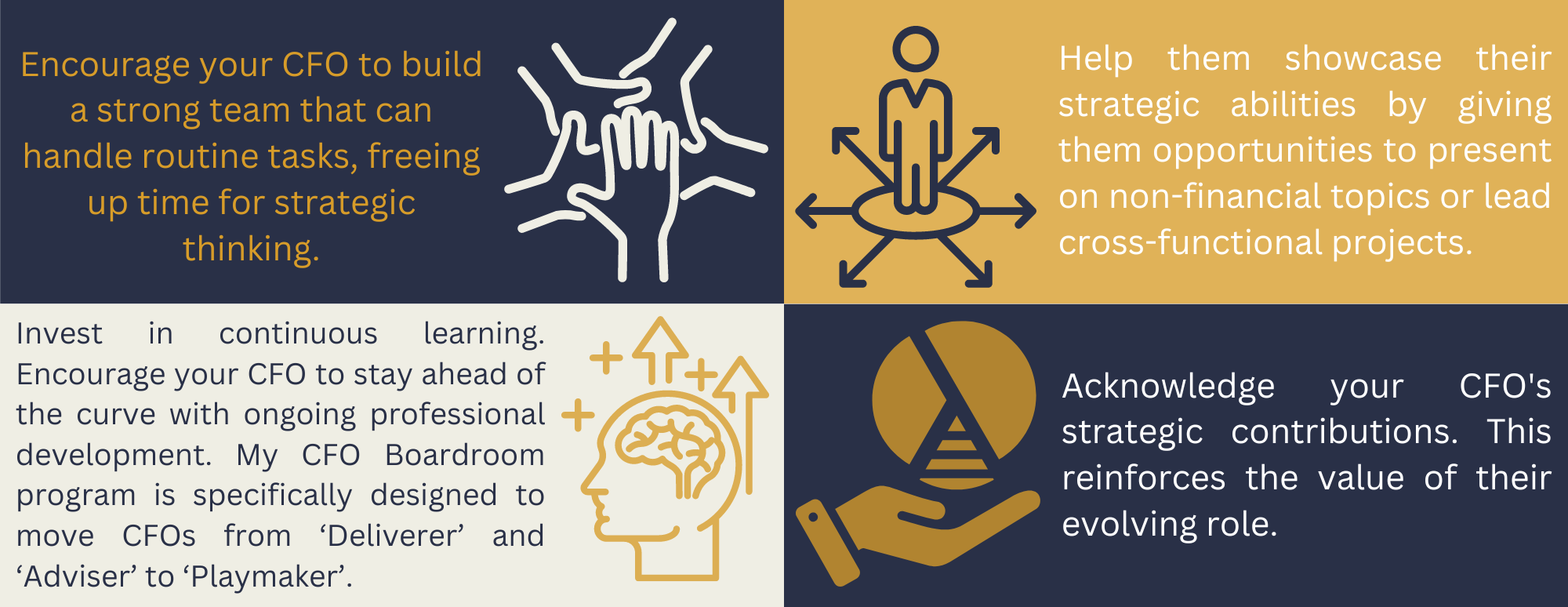At my daughters' new school, they offer chess classes at lunchtimes and my eldest has taken an interest. Watching her learn the game, I've been struck by how the levels of chess mastery mirror the evolution of CFOs. Just as chess players progress from beginners to grandmasters, CFOs grow from Firefighters to Playmakers.
A novice chess player in a panic might make rash moves without considering the consequences, much like a Firefighter CFO reacting to crises without strategic foresight. As players improve, they start to grasp the basics and think a few moves ahead - this reminds me of the Deliverer CFO stage.
Deliverer CFOs, like intermediate chess players, have a good understanding of the 'game'. They know the rules, can execute standard 'openings' (or in the CFO's case, financial processes), and are starting to think more strategically. However, when faced with a more experienced opponent - or in the CFO's world, a complex business challenge - they might still struggle to have a significant impact.
In my work with finance leaders, I've had the pleasure of witnessing many CFOs evolve from reactive 'Firefighters' to more strategic 'Deliverers'. It's like watching a chess player move from making impulsive moves to developing a more thoughtful, forward-looking approach to the game.
Are you starting to balance your day-to-day financial responsibilities with more strategic thinking? If so, congratulations! You might just be a "Deliverer CFO"
In this article, we move on from the reactive "Firefighter" (which we discussed last week) to the more proactive "Deliverer," a significant leap forward that can add substantial value across the finance function and the organisation.
The Deliverer stage represents almost 1 in 5 of all CFOs, according to our research. These CFOs have managed to step back from constant crisis management and are beginning to think about how to deliver real business value.
1. They're working on balancing operational and strategic aspects of finance, but may still lean more towards operations
2. They're learning to delegate, but may still find themselves too involved in the day-to-day
3. They communicate valuable financial insights to non-financial stakeholders when asked, but are not yet proactively feeding insights and data to cross-functional teams
4. They're contributing to though not yet proactively leading business strategy discussions
Does this sound like where you're at? If so, you're in a great position. Deliverer CFOs are doing the things that are required of them and they're poised for even greater impact as they continue to evolve.
1. Delegation: Deliverer CFOs often struggle with letting go of the detailed work they've mastered. They might find themselves too involved in their team's tasks, misinterpreting this hands-on approach as supportive leadership. However, this 'hand-holding' can stunt both their own performance and their team's development.
2. Influence: Whilst you have found your voice and have valuable insights to share, you can struggle to use it effectively to build influence across the organisation. Some stakeholders might still see you as just a "numbers person".
3. Prioritisation: Deliverer CFOs often find themselves caught between day-to-day operations and long-term strategy. Often, they're doing what's needed, but not what's 'really' needed to drive significant value.
Remember, these challenges are actually opportunities in disguise. Each one overcome is a step towards becoming an even more effective leader.
• An improving balance between managing day-to-day operations and considering longer-term implications
• Skills in team management, though they may still struggle with delegation
• An increased awareness of the need for cross-functional collaboration, even if they're still developing these skills
• A desire to be more proactive, though they may still find themselves reacting to issues more often than they'd like
Adviser CFOs build upon the strengths of the Deliverer, taking on a more proactive role in the organisation. They're not just delivering financial insights; they're actively using those insights to build influence and they're increasingly making valuable contributions to decision-making processes.
The transition from Deliverer to Adviser is marked by:
• A more balanced focus between operational and strategic responsibilities
• Increased involvement in broader business strategy discussions
• Non-financial stakeholders proactively seeking them out for their opinion
• Enhanced communication skills and influence, particularly with non-financial stakeholders
Whilst the Adviser role represents significant growth, it's not the pinnacle of CFO evolution. There are still higher levels to aspire to, including Partner and Playmaker.
If you haven't taken the CFO of the future index, I invite you to here. Send me the results (you'll get a prompt once you've completed the diagnostic) and you'll get your own bespoke CFO of the Future Sequence of Success report.
What are your indicators when you slip into Deliverer?
How quickly can you elevate out?
What could be possible for you if elevated to Adviser, Partner or Playmaker?
I'd love to hear your thoughts...



